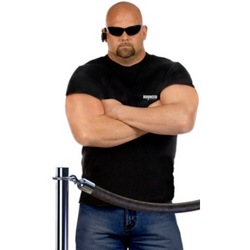

In most cases, the process is fairly simple: check the app, or check the COVID vaccine card, check their ID and then guests can go into the event. “It’s a little time consuming, but it’s not something we haven’t done previously,” Troiano tells Fortune, noting that security personnel routinely checked IDs before the pandemic. Her response: that’s great, but unless you can show proof of your vaccine, I can’t let you in.Īnd it’s not always event directors who are shouldering the latest COVID protocols for events, which usually involve checking vaccination status on an app, looking through vaccine cards, verifying negative COVID tests or even reminding guests to wear their masks.Įdward Troiano, owner of New York City-based Knight Security, and his team are now at the door checking that not only people are on the guest list, but also that they’ve complied with the necessary COVID protocols to enter. “Luckily, he was graceful and he understood.” But she’s also had to deal with attendees who protest the policies, saying it’s against their rights. “It was to the point where the designer for one of the shows was not allowed inside,” Jimenez says. The Ballroom played host to several days of events where the client required everyone entering be vaccinated. Major cities including New York City, San Francisco, New Orleans, as well as Los Angeles county, require proof of vaccination to enter many indoor businesses, including bars, restaurants and event venues.Īlthough most events have run smoothly, Jimenez says she ran into some “interesting cases” during this year’s Fashion Week. “Funny enough, she actually did go to CVS to get a copy and she came back for later service.” The return of weddings, concerts, and indoor events has created a new job: the COVID bouncer. “That was not too crazy, but she definitely spent an hour on the steps, trying to get me to let her in.

“She was just like, I have CVS on the phone and I’m like, well that’s great, but unless CVS is FaceTiming me with your official paperwork…step to the side,” she adds with a laugh. “She was elderly so obviously we tried to accommodate her, but didn’t let her in,” Jimenez tells Fortune. The venue was hosting Yom Kippur services, and while the rabbi had communicated that proof of vaccinations were required to attend, this individual arrived without any documentation. Not because she wanted to, but because it was now part of her job as director of events at the New York City-based Prince George Ballroom. On Yom Kippur, Karen Jimenez spent an hour arguing, as politely as possible, with a little old lady.


 0 kommentar(er)
0 kommentar(er)
